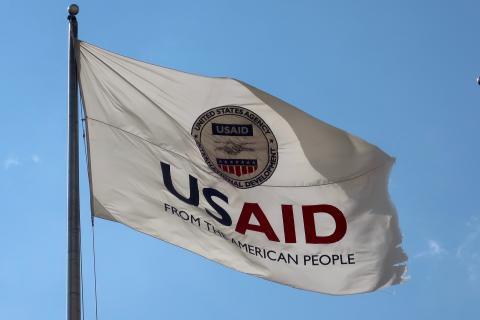
Defining materiality, reporting thresholds and reporting entities
EITI Requirement 4.1
Guidance for multi-stakeholder groups (MSGs) on defining materiality thresholds and reporting entities
Summary
A fundamental element of the EITI is the disclosure of payments and revenues from oil, gas and mining. All implementing countries are required to disclose information about how much extractive companies pay in taxes, royalties and other payments and how much the government agencies have received. This data has to be comprehensive, i.e. give the reader a complete picture of the total revenues received from natural resources. Experience with EITI implementation shows that many implementing countries have struggled to develop a systematic approach to defining “all material payments and revenues”. In some cases, important revenue streams have been left out. In other cases, it has been difficult to determine whether all companies that make material payments disclosed their payments. This is a particular challenge in countries where a number of small companies make payments that are individually insignificant, but collectively significant.
The EITI Standard seeks to address this through requirement 4.1 on comprehensive reporting. This note provides guidance to multi-stakeholder groups (MSGs) on defining materiality based on four steps (1) develop a clear understanding of the revenue streams in the relevant extractive sectors; (2) establish which revenue streams are material, and whether payment thresholds are needed; (3) identify reporting entities; and (4) document the MSG’s deliberations.
EITI Requirement 4.1 relates to the comprehensive disclosure of taxes and revenues and the need to agree which payments and revenues are material and therefore must be disclosed.
Requirement 4.1.a further specifies that “in advance of the reporting process, the multi-stakeholder group is required to agree which payments and revenues are material and therefore must be disclosed, including appropriate materiality definitions and thresholds. Payments and revenues are considered material if their omission or misstatement could significantly affect the comprehensiveness of the EITI Report. A description of each revenue stream, related materiality definitions and thresholds should be disclosed. In establishing materiality definitions and thresholds, the multi-stakeholder group should consider the size of the revenue streams relative to total revenues. The multi-stakeholder group should document the options considered and the rationale for establishing the definitions and thresholds.
Requirement 4.1.b lists the revenue streams that are typically found in the extractive sector and should be disclosed as part of the EITI process.
Requirement 4.1.c outlines the requirements related to identifying reporting entities: “Implementing countries must provide a comprehensive reconciliation of government revenues and company payments, including payments to and from state owned enterprises, in accordance with the agreed scope. All companies making material payments to the government are required to comprehensively disclose these payments in accordance with the agreed scope. An entity should only be exempted from reporting if it can be demonstrated that its payments and revenues are not material. All government entities receiving material revenues are required to comprehensively disclose these revenues in accordance with the agreed scope”.
Requirement 4.1.d provides details on the need for full government disclosure: “Unless there are significant practical barriers, the government is additionally required to provide aggregate information about the amount of total revenues received from each of the benefit streams agreed in the scope of the EITI Report, including revenues that fall below agreed materiality thresholds. Where this data is not available, the Independent Administrator should draw on any relevant data and estimates from other sources in order to provide a comprehensive account of the total government revenues”.
Связанные материалы





